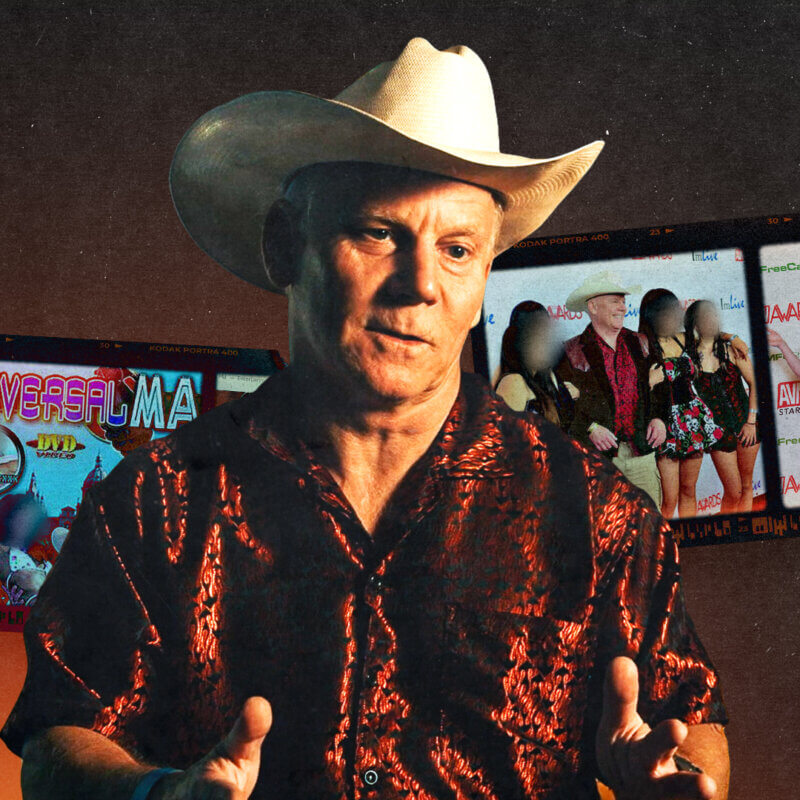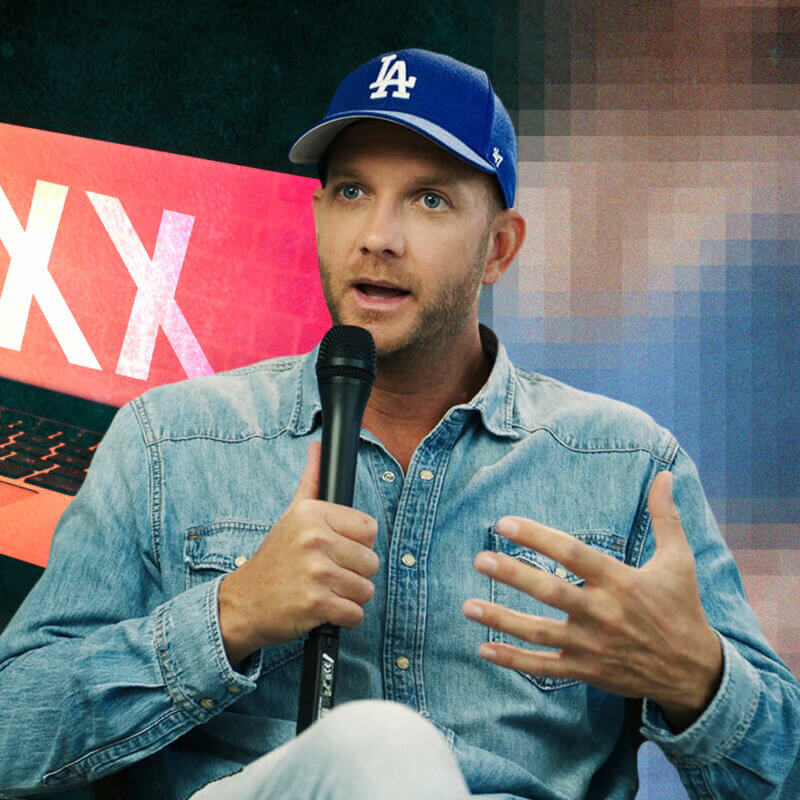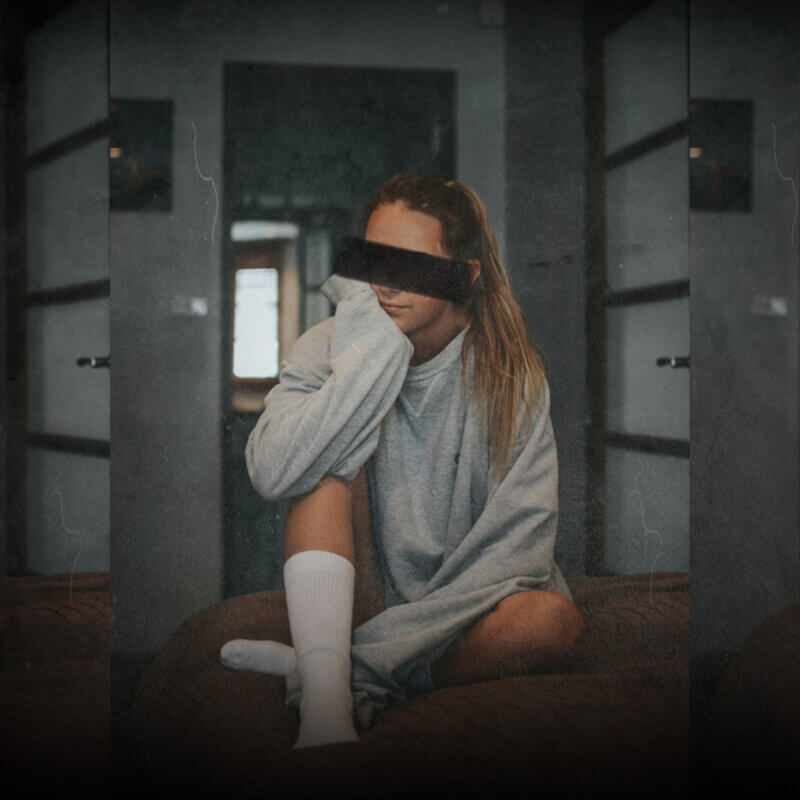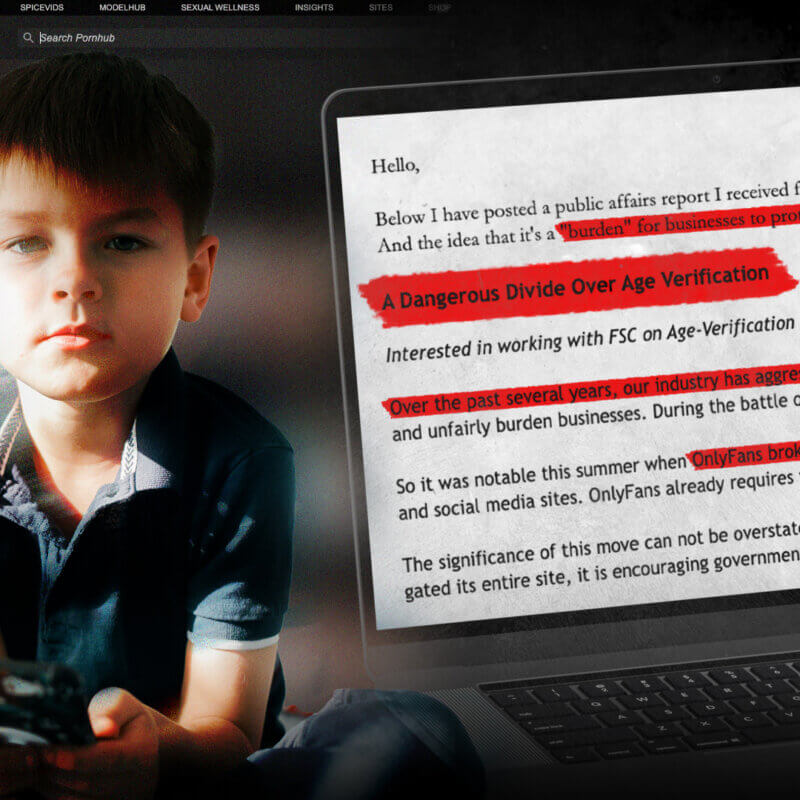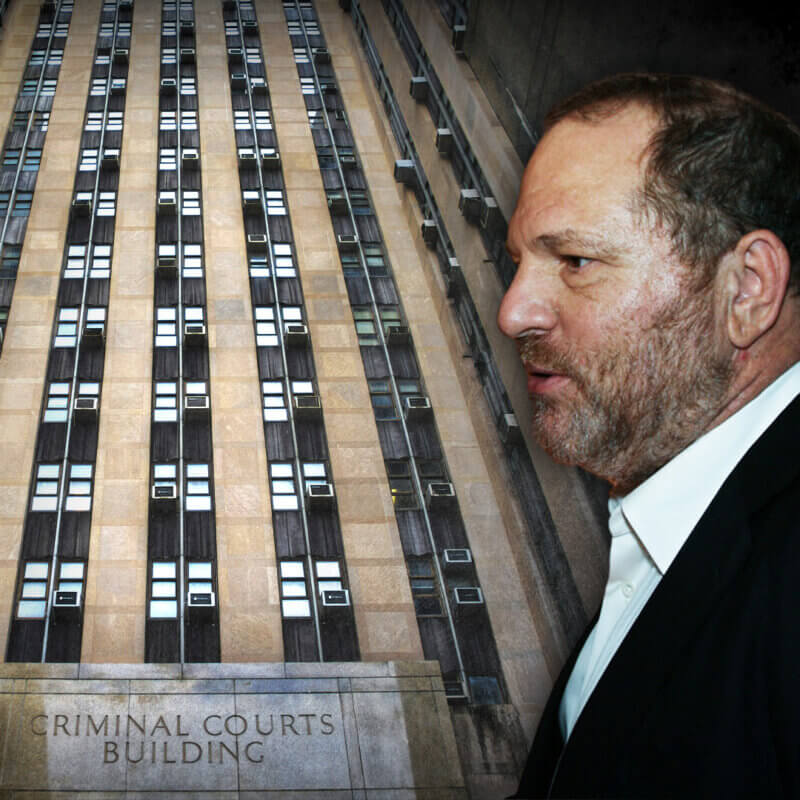

We recently sat down with Benji Nolot, Exodus Cry’s founder and the director of our new film Raised on Porn, to ask him about the documentary and the heart behind the film.
Benji has produced and directed multiple documentaries including Nefarious: Merchant of Souls, which won 24 awards, and Liberated: The New Sexual Revolution which was acquired by Netflix.
Raised on Porn is now available to watch HERE for free.
Below is the abridged version of the interview. For the full version, watch the video.
INTERVIEW:
Q: What is Raised on Porn about?
Benji: Raised on Porn is a tough subject because it deals with the issue of childhood exposure to pornography. Our children live in a world today in which they are routinely exposed to porn, and so Raised On Porn seeks to quantify the impact of childhood exposure to pornography and basically what we can do about it.
Q. What stirred you to make the movie in the first place?
Benji: I’ve been fighting sex trafficking now for close to 15 years and as part of that work, you know, I’ve really tried to look deeply at some of the underlying root causes of sex trafficking in our world, and one of those, the predominant one, is the demand for illicit sex, predominatly from men.
And so, in going down that rabbit hole, we began to understand that a lot of these men who were sex buyers, in fact, every sex buyer that we interviewed, had a long history in pornography consumption first, starting from childhood.
And so they described how pornography indoctrinated them with certain views and appetites and beliefs which led to them seeking out illicit sex and prostitution. So we wanted to dive more deeply into that subject and find out what was going on, and specifically, how it’s affecting children who are exposed.
Q. Does Raised on Porn differ from the other films you’ve made, and if so, how?
Benji: For us, all of our films are going down this rabbit hole of trying to unearth what’s happening in our world related to the global commercial sex industry and all the exploitation that is going on in that.
“They [sex buyers] described how pornography indoctrinated them with certain views and appetites and beliefs which led to them seeking out illicit sex and prostitution.”
You can’t separate sex trafficking from the larger global sex industry, you can’t seperate porn from it… they’re all overlapping realities and they feed each other. Our first documentary, Nefarious, was a global snapshot of sex trafficking. Liberated goes more deeply into the cultural underpinnings of that, and then Raised on Porn goes even further into the ways in which children are exposed to pornography and how that is a contributing cause as well.
But it’s not just the issue of sex trafficking that we’re concerned with. We’re concerned with the mental and emotional, and sexual health of young people growing up in our world today. Most kids are growing up on the most deviant, graphic, hardcore, body-punishing depictions of sex, and it’s extremely damaging to their mental, emotional, and sexual health.
RELATED: The Raised on Porn Reviews Are In: “Everyone Needs to See This”
Q. What do you think people are going to take away from the film and do you think there’s a chance for it to be controversial?
Benji: I just think that it will really help people see a different perspective about this. I don’t think most people are aware of the public health crisis that porn poses. I don’t think they’re aware of how deeply neurologically impacted we are by pornography—this really extremely graphic, potent substance, when we’re children.
And so I think that the movie will be eye-opening for a lot of people and help offer a perspective that causes people to take this issue more seriously. The fact is that today in our world, the internet is here to stay. This digital universe where we live so much of our lives, is here to stay. And it’s just not safe for children.
We have to start looking at making it a safer place for children and demanding that age verification walls get put in place for anyone hosting or distributing pornographic content. We have to take the health of our children more seriously than we do the convenience and sexual gratification of adults looking for illicit content online.
Q. As a filmmaker, when you’re doing interviews, you’re setting the stage for really intimate stories to be told. How do you go about creating a space that cultivates that level of conversation?
Benji: We feel so grateful for the people that interview with us. Whether it be a professional who’s generously offering freely their insights and life’s work into helping to shape and understand whatever subject we’re going after, or our first person interviewers that have lived these realities in different ways.
“Most kids are growing up on the most deviant, graphic, hardcore, body-punishing depictions of sex, and it’s extremely damaging to their mental, emotional, and sexual health.”
There’s vulnerability there and a necessary courage to go and to appear on film. We really try to approach our interviews with reverence, with gratitude and then we work together as a team to create the optimum environment of focus. Our attention is given fully to our interview subjects.
And we try to create as safe and comfortable a place as possible for them to be able to unpack either the insights that they have, or the experiences that they’ve been through. In bringing that level of reverence to the interview, oftentimes, interview subjects will divulge things that maybe they didn’t plan on and some of those really spontaneous, raw and authentic moments just come through so powerfully on screen.
We really value that because ultimately we feel that the level of authenticity of the interview subjects is what’s gonna translate to our audience and hopefully create a transformational experience for them watching our films as well.
Q. What are you most proud of about the film?
Benji: We were working on several other films and this sort of emerged out of the leftover content and so we were actually quite pleased with the themes that we were able to bring together, and the way that this film took shape in kind of an unexpected way. It still amazes me.
But we really struggled with, what is the visual scape of this film? How do we tell this story visually? That was the biggest challenge, and so I think that, what at one time was the film’s greatest weakness, has become its greatest strength. I think we’ve established a really beautiful visual aesthetic for this film that will create a very compelling viewing experience for viewers.
Beyond that, I’m so grateful and proud of our team that was able to deliver on this level of excellence. But the interview subjects, that’s always the biggest thing for me, they make the film, you know?
We try to uphold a high level of excellence on the execution, production quality of the film, but that only matters if we have good interview subjects and really it’s about creating the best space for their voice to come through.
I feel like we have such powerful interviews and so I’m most proud of our interview subjects—their courage, willingness and generosity to interview with us, to share their story and their insights. I think that the audiences who watch this will be moved by that.
Q. What do you think is the answer to the issue of childhood exposure to pornography?
Benji: It’s got to be a multi-tiered effort—I don’t think it’s just one thing. First and foremost, it starts in the home. I think it’s really important as parents that we’re aware of the dangers that pornography presents to our children, that we take that seriously in the protections that we put in place in our own home and sphere and network of influence.
Beyond that, there’s a lot more that Big Tech and Big Porn can do. For starters, there must be age verification walls that are required to be in place to host and distribute pornographic content. And that should have happened 20 years ago so we are long overdue for that.
And then the people who are creating the actual tech devices can create default features that don’t allow for that graphic pornographic material to be available unless you go and specifically request it by giving a credit card and a government ID and so on. I think that across the board, there’s responsibility on all parties and we have to work together making the children a priority, the next generation, and their mental, emotional, and sexual health.
—
Your voice makes a huge difference. Here’s how you can help the #ProtectChildrenNotPorn campaign impact millions of children:
- Join 50k+ others by signing the petition demanding age verification, with ID, on porn sites. Then share it.
- Watch Raised on Porn, free on YouTube, then like, comment, and share it with 5 friends.
- Give here. The more resources we have the more people we can reach with this film and campaign.
Join the movement!
Subscribing to our email list connects you with the heartbeat of the movement to end commercial sexual exploitation.
